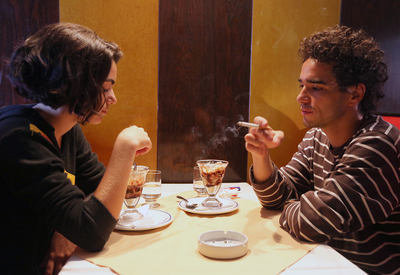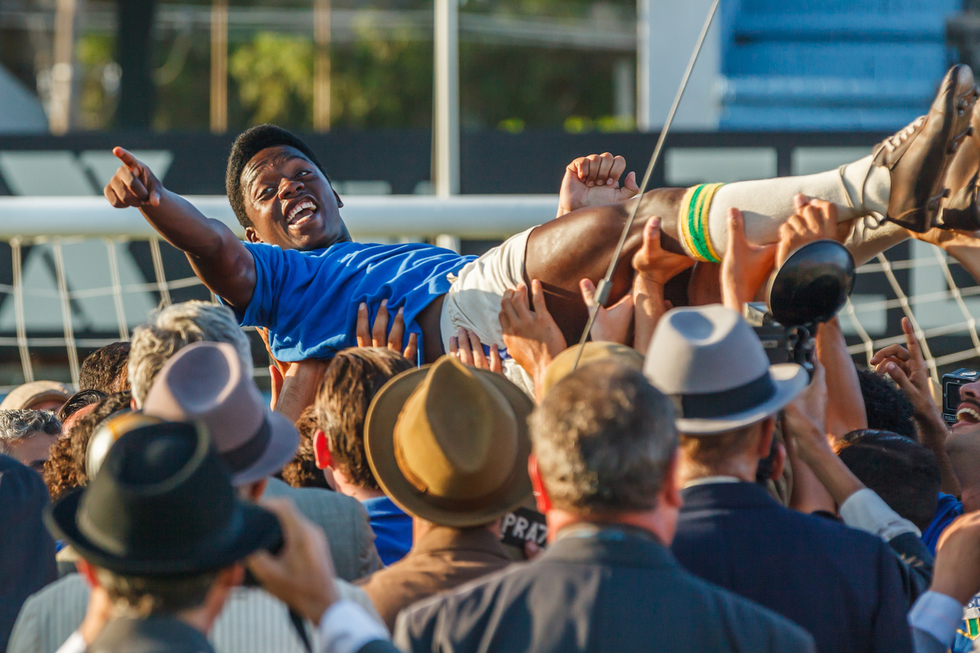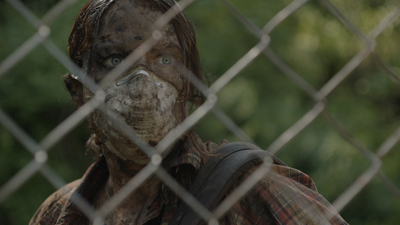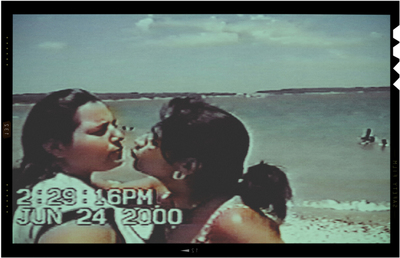
BY CAMILA RODRIGUEZ |
5 Tribeca Directors Reveal Their Biggest "Wow" Moments
What do THE PRINCESS BRIDE, orgy metaphors, and chess all have in common? They're partly responsible for some of Tribeca 2016's world premieres.

We asked five Tribeca directors what their "wow" moment was while making their film. Their answers, complete with stories about child prodigies, mystical ruins, and cataclysmic orgies, didn't disappoint.

Liza Johnson, Elvis & Nixon: One day on set, I looked over and I saw a man I'd never seen before standing over at the monitors. I suddenly realized it was the real Bud Krogh, talking to the real Jerry Schilling. (In real life, as in the film, they set up the meeting between Elvis and Nixon.) It was uncanny seeing Alex Pettyfer dressed as Jerry and Colin Hanks dressed as Bud, running around right next to the real historical figures. It turns out that Bud LOVES Cary Elwes, who's one of the writers, and he started acting out scenes from The Princess Bride for me. Please understand, this is a man who DID TIME for Richard Nixon. Later at the bar, I heard Bud doing his best Cary Elwes FOR Cary Elwes. Shortly after that, Johnny Knoxville may or may not have lit Alex Pettyfer's foot on fire with tequila.
Buy tickets for Elvis & Nixon here.
Jeff and Michael Zimbalist, Pelé: Birth of a Legend: There were a number of "wow" moments when it came to the athletic ability of Kevin de Paula, our lead actor for teenage Pelé. One that comes to mind is a shot we set up that required Kevin to leap multiple feet into the air and scissor-kick a mango off a tree towards a garbage can about 40 feet away. We were worried about whether Kevin would be able to jump high enough to even reach the mango, and if he'd be able to kick it with enough force to launch it off the branch. On his first attempt, Kevin not only reached and launched the mango, but also fired it directly into the garbage can! We all had to pick our jaws up off the ground. The shot is now in the film.
Buy tickets for Pelé: Birth of a Legend here.

Lydia Tenaglia, Jeremiah Tower: The Last Magnificent: There were two "wow" moments. The first was when we shot Jeremiah at the ruins in Mexico. We were scheduled to shoot on a Wednesday in the afternoon, the only time we would be allowed access. But due to a delayed plane, I arrived in Merida late and the schedule was rearranged. We were told we would not have access to the ruins, but through some back channels we were told that if we arrived at 6 a.m. and left by 8 a.m., we could shoot. We arrived as the sun was just coming up; there was no one there, and the sound of the jungle was truly mystical. If it weren't for the missed plane, we never would have been able to capture the beauty of that moment.
The other "wow" moment happened toward the very end of shooting. Jeremiah's time at Tavern on the Green was unraveling, and in an uncharacteristic moment of true candor, he talked about the painting that hung in his small apartment; it was a painting from his childhood that held a lot of meaning for him. His explanation [of the painting's meaning] was the true ending the film needed.
Buy tickets for Jeremiah Tower: The Last Magnificent here.

Benjamin Ree, Magnus: In 2004 we filmed Magnus Carlsen at the age of 13. At that time he was a child prodigy and was, as most children, very playful. He prepared for chess tournaments by reading Donald Duck, singing Norwegian children's songs, and playing card games with his sisters. Ten years later, at 23, he did the exact same thing before crucial chess games: reading Donald Duck (which is still his favorite), singing the same children songs, and playing card games. That's when I knew how closely playfulness is connected to creativity and intuitive thinking. This is my "wow" moment because Magnus has the same approach to chess. He has studied the game in a completely different way than all the greatest chess players in history. He has been driven by playfulness and curiosity, rather than discipline and structure. That's why he is known as "The Mozart of Chess."
Buy tickets for Magnus here.

Daniel Grove, The Loner: Making a film is like throwing a cataclysmic orgy everyday for several weeks. Then it ends. Everyone leaves. And you're left pregnant and unsure as to who the father is. On top of that, you're debating how you felt about the whole experience. But then your editor-nanny helps you rear this film-child-thing you have growing. And bit-by-bit, you appreciate its weird and wonderful eccentricities. You begin to see the best qualities of its parents shine through and you begin to love your film for what it is as opposed to what you planned it would be. This thing-child becomes a film. And now the village comes back for one final send-off. And then I go off to another cataclysmic series of orgies. Like, wow!
Buy tickets for The Loner here.



